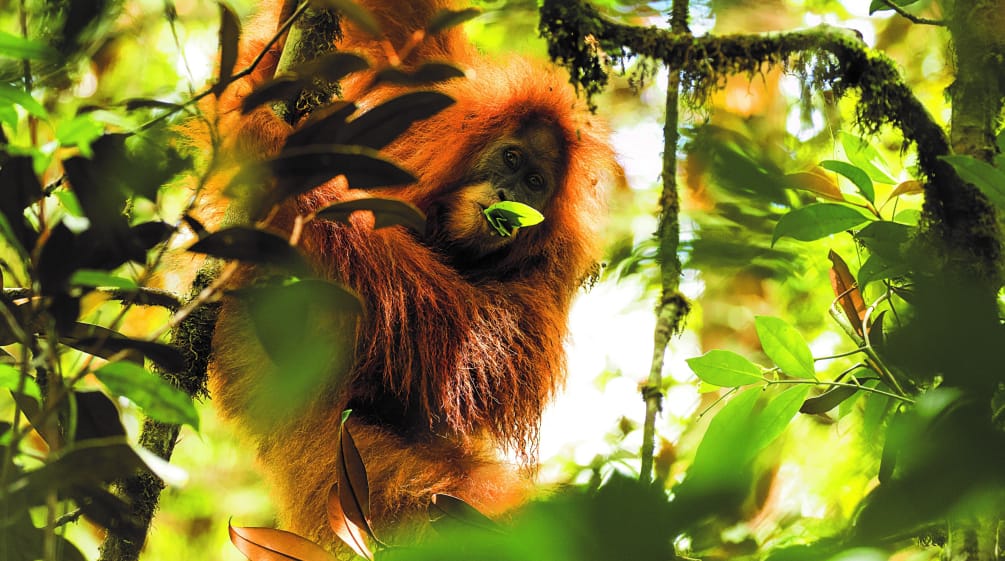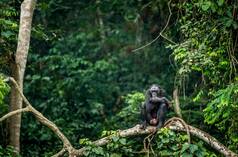A Waste of Time and a Wasted Opportunity
 © Maxime Aliaga
© Maxime Aliaga
Nov 5, 2024
The countries of the world have failed to understand the urgency of stopping the mass extinction of animal and plant species: the 16th UN Biodiversity Conference in Cali was suspended without an agreement on funding. The question of how to pay for the preservation of biodiversity remains unanswered.
The UN Biodiversity Conference (COP 16), which ended at the weekend in Cali (Colombia), was supposed to build the financing architecture of biodiversity conservation. However, the negotiations ended on Saturday morning without a final agreement.
The delegations had been negotiating all night. As the night wore on, more and more participants left the conference for the airport because they couldn’t afford to re-book their flights home, thus the plenary lost quorum and the negotiations were suspended.
One central point of contention not yet resolved was whether a separate funding pot should be set up for global nature conservation. Countries of the Global South, which are home to a significant proportion of biodiversity (like rainforests) would have a greater say. The EU and others continued to oppose this.
Promised in 2022 - Postponed until October 2025
Two years ago rich countries pledged to make USD 20 billion available annually for the protection of biodiversity by 2025, and 30 billion by 2030. But so far, only a small portion of this has been made available, and often only as a loan.
The decision on finances and other issues has been postponed until the next meeting in Thailand in October 2025. “The meeting is adjourned” was the last sentence of COP 16.
As financing issues remain unresolved, it is unclear how strongly countries will aim for offsets and biodiversity credits to obtain money. To draw attention to the risks of these compensation schemes, Rainforest Rescue will continue to pursue the petition “Nature is not a commodity”.
Positive: Indigenous Peoples strengthened
Two decisions with positive outcomes were taken during COP 16.
The first was the creation of a separate body to safeguard the rights and interests of Indigenous Peoples.
“We very much welcome the fact that the rights of Indigenous Peoples to have a say on protecting biodiversity have been strengthened. They are the true protectors of nature,” says Marianne Klute, Chairwoman of Rainforest Rescue: “The question is, of course, whether these rights will have an impact in practice. Will what Indigenous People say carry real weight in the decision-making process or will it be taken as a formality and then disappear down the bargaining hole?”
Money for Digital Sequence Information (DSI)
The second promising outcome was the creation of the “Cali Fund”. Among others, pharmaceutical, cosmetic and agricultural companies are to pay 1% of their profits from the use of plant genetic data into this fund. The money collected is intended to benefit, in particular, Indigenous Peoples and local communities in the Global South, who protect nature and thus its genetic resources. However, the payments are only voluntary.
Review of the “30 by 30” target
One of the most memorable goals of the previous conference in Montréal was to protect 30 percent of the world's land and oceans by 2030. A new UN study now shows that the target is a long way off.
According to the study, of the 30 percent targeted only 17.6 % of land and 8.4% of ocean water has been protected thus far. In order to reach the target within the next six years, an additional 16.7 million square kilometers of land would have to be placed under protection. (This corresponds to about 45 times the area of Germany).
Like numerous human rights and indigenous organizations, Rainforest Rescue warns that “30 by 30” could lead to the eviction of millions of people living in areas designated as protected.
The fact that only 3.95% of the protected areas are managed by Indigenous Peoples shows how little consideration has been given to them so far. According to the UN authors, the 30% target would be easier to achieve if more indigenous territories were recognized as such and declared for conservation purposes.












